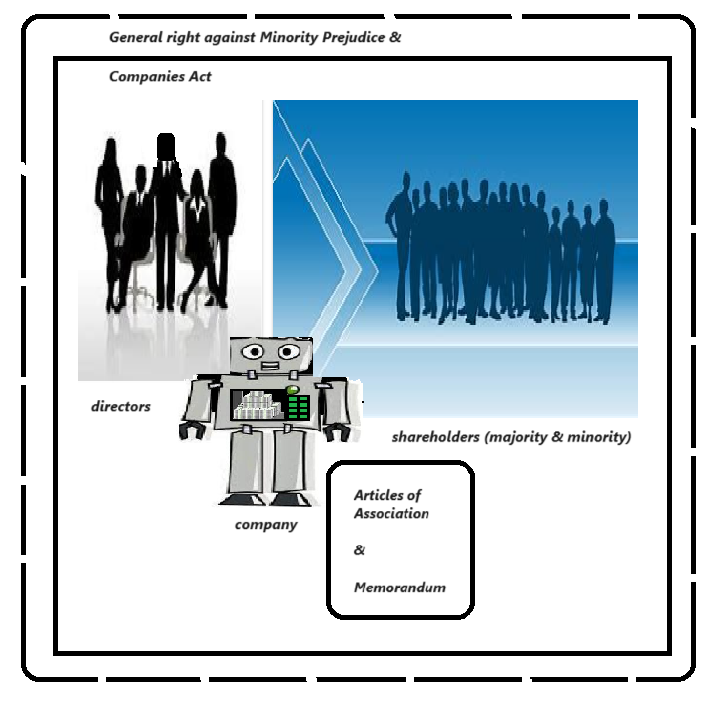Re Saul Harrisons and Sons Plc, 1995, [1995] 1 BCLC 14
Citation:Re Saul Harrisons and Sons Plc, 1995, [1995] 1 BCLC 14
Rule of thumb:What rights do shareholders have? They have all the rights in the Companies Act & Articles of Associations/Memorandum. However, they also have a broad right not to receive ‘unfairly prejudicial’ treatment – this generally means that directors & majority shareholders cannot act in a way which prejudices minority shareholders & this is an open ended category.
Judgment:
‘”Unfairly prejudicial” is deliberately imprecise language which was chosen by Parliament because its earlier attempt in s 210 of the Companies Act 1948 to provide a similar remedy had been too restrictively construed. The earlier section had used the word ‘oppressive’, which the House of Lords in Scottish Co-op Wholesale Society Ltd v Meyer [1958] 3 All ER 66, [1959] AC 324, [1958] 3 WLR 404 said meant ‘burdensome, harsh and wrongful’. This gave rise to some uncertainty as to whether ‘wrongful’ required actual illegality or invasion of legal rights. The Jenkins Committee on Company Law, which reported in 1962, thought that it should not. To make this clear, it recommended the use of the term ‘unfairly prejudicial’, which Parliament somewhat tardily adopted in s 75 of the Companies Act 1980. This section is reproduced (with minor amendment) in the present s 459 of the Companies Act 1985…. For the purpose of determining the legal rights of the petitioner one turns to the memorandum and articles of the company because the articles constitute the contract between the company and the member in respect of his rights and liabilities as a shareholder. Furthermore, it is to be remembered that the management of a company is entrusted to the directors, who have to exercise their powers in the interests of the company as a whole. A shareholder can legitimately complain, however, if the directors exceed the powers vested in them or exercise their powers for some illegitimate or ulterior purpose’, Neill LJ

Warning: This is not professional legal advice. This is not professional legal education advice. Please obtain professional guidance before embarking on any legal course of action. This is just an interpretation of a Judgment by persons of legal insight & varying levels of legal specialism, experience & expertise. Please read the Judgment yourself and form your own interpretation of it with professional assistance.

